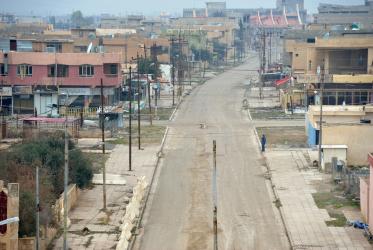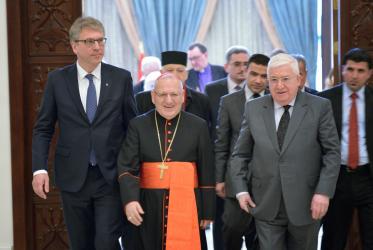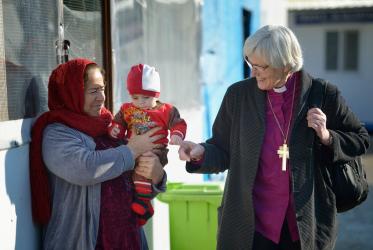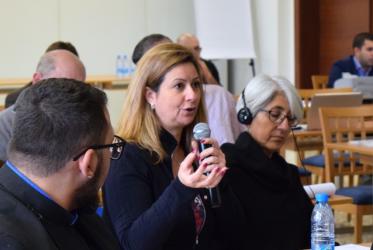Displaying 61 - 80 of 175
Forum strengthens ecumenical commitment to diakonia
12 October 2017
Conference explores Christian approach to borders
05 October 2017
WCC condemns terror attack on evacuees in Syria
16 April 2017
WCC decries escalation of Syria conflict
07 April 2017
In Lebanon, refugees face hardship - but find hope
16 March 2017
“When everybody is building walls, the church can build bridges”
30 January 2017
“We can’t go back as long as we know we are not secure”
26 January 2017
Church in German state is a partner for refugees and society
20 December 2016
‘No Christmas bells in Mosul’ for a third year, says Assyrian priest
14 December 2016
Churches’ diaconal action in the Middle East analyzed
01 December 2016
Plans for 2017 decided by WCC Executive Committee
01 December 2016














